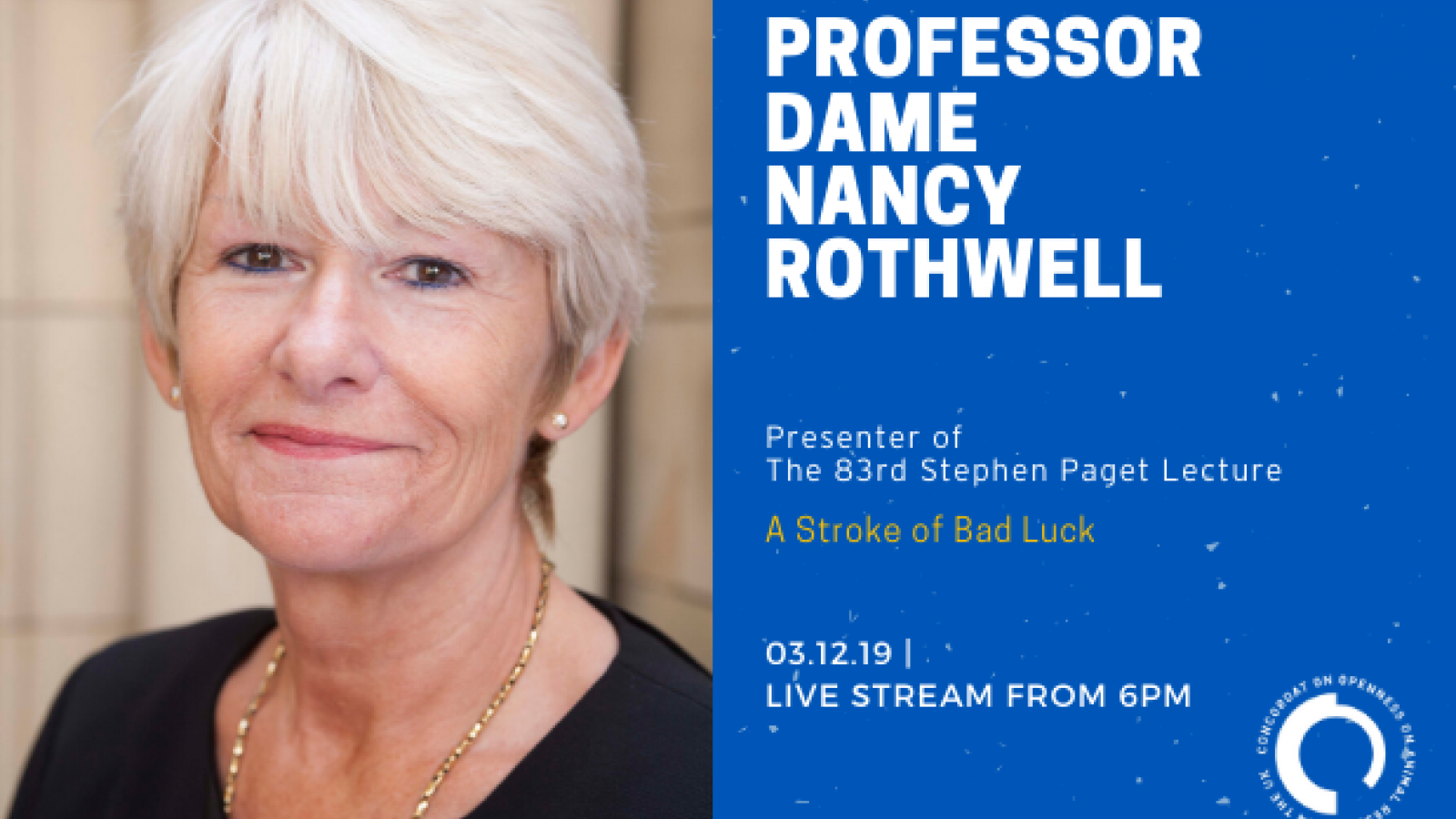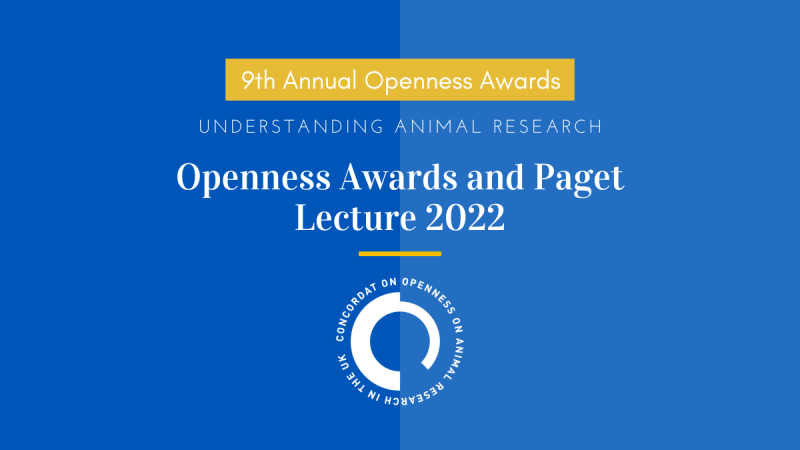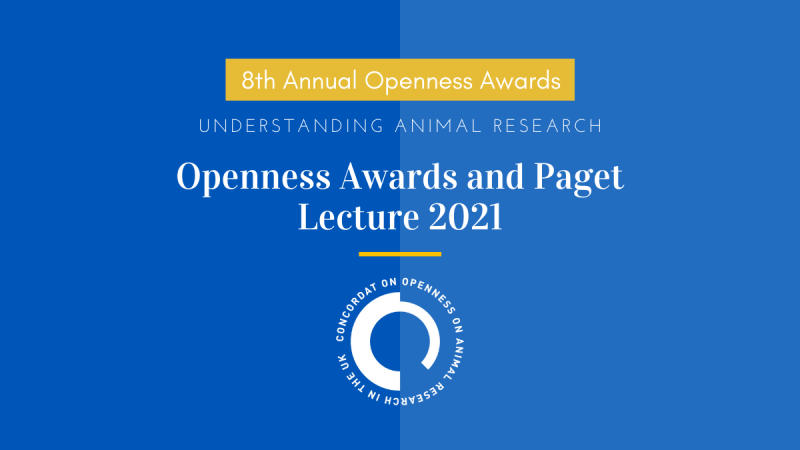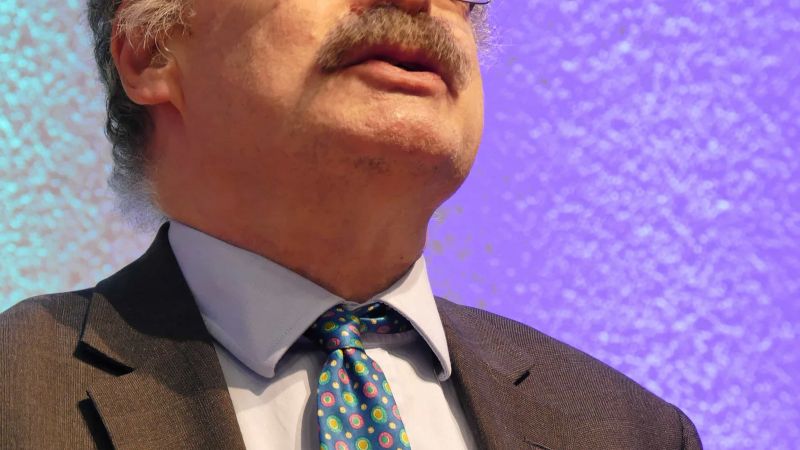Text to go here...
Join us on 3 December at 6pm for a live stream of the 2019 Openness Awards and Paget Lecture where Professor Dame Nancy Rothwell will be presenting her lecture ‘a stroke of bad luck’.
The Stephen Paget Memorial Lecture
The Stephen Paget Memorial Lecture is a scientific lecture that commemorates the life of Dr Stephen Paget. Stephen Paget (1855 – 1926) was the founder of the Research Defence Society, a forerunner of Understanding Animal Research. As a medical doctor, he believed passionately that better science and understanding of physiology would lead to better medical treatments.
After his death in 1926, he was greatly missed by his colleagues and by the scientific community. The first Stephen Paget memorial lecture was given in 1927 to commemorate his life and allow leading bio-medical scientists of the day to talk about their research.
You can read and see nearly a hundred years of lectures on Animal Research Information here: http://www.animalresearch.info/en/medical-advances/articles-lectures/
The Openness Awards
The Concordat on Openness launched in May 2014 and has, to date, brought together 122 organisations in a pledge to be more open and transparent about their use of animals in research.
This year the Openness Awards celebrate four recipients that have met the Concordat commitments and encouraged the widespread sharing of best practice. These are the different categories
- Internal or sector engagement activity
- Public engagement activity
- Media engagement or media stories
- Website or use of new media
Following the award ceremony Professor Dame Nancy Rothwell, President and Vice-Chancellor of the University of Manchester will give the 2019 Paget Lecture. She will present her ground breaking work on stroke and the role of inflammation in brain damage, that has recently translated into clinical trials.
Earlier, our science writer, Mia Rozenbaum, interviewed Professor Dame Nancy Rothwell about her work.
Although Nancy’s ongoing research has concentrated on neurosciences for almost three decades, spanning from cell biology, animal research through to clinical work, this wasn’t always the case. Some of her early research focused on obesity, weight loss in disease and metabolism. It was luck and a fantastic discovery that brought her attention to the brain.
“It was purely by chance that I was using an animal model for stroke to study weight loss and metabolism in disease and that we found that a blocker of a cytokine could reduce, not only metabolism and weight loss, but also brain damage. So I switched fields to work on stroke,” she explains.
From finding that a specific cytokine – interleukine 1 – could contribute to brain damage, at least in animals, her work then focused on what activates the molecule and how it works. Her research group is now two years away from concluding two clinical trials for new treatments that if sucessful might prevent death and disability by stroke. In the UK, every 5 mins, a person will have a stroke and might end up benefitting from this research.
Animal research has been and still is a huge part of Nancy’s work.
“I’ve worked with animals for all of my career, and we wouldn’t be at the brink of finding new treatments without work in animals. And I think we will still be doing animal research in the years to come,” she says.
However, over the last decades, her work has gradually moved away from animal research.
“We are using a lot more cell biology, in vitro approaches and clinical research than we did 10 or 15 years ago. And we have implemented a huge amount of 3Rs in our lab.”
This has meant looking for non-animal models, refining experiments, reducing the number of animals used, implementing environmental enrichments, and more ethical approaches. A lot of work has also focused on validating the animal experiments to ensure reproducibility in order to eventually move to clinical trials. It also involves theoretical modelling, and lower animal species. But she remains clear,
“At the moment, I don’t see how we will be able to stop doing animal research completely, although I do hope we will be able to one day. For the foreseeable future, the use of animals will still be necessary.”
Last edited: 31 October 2022 14:02




